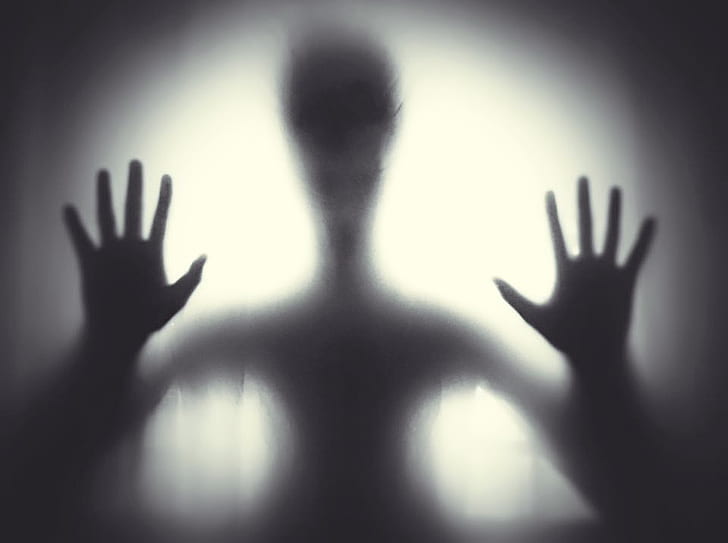What is a poltergeist? Well, it's unseen and can't be touched. They are typically mischievous and can play tricks on the people they haunt. They have been known to manipulate objects in a person’s environment. Most of the time they are assigned to a certain family. It is thought that they are tied to that family by a mental connection. Poltergeists have been shown to cross over to other families by being passed on in some form. They have no conclusive physical evidence of their existence. Most people believe that poltergeists are not spirits or ghosts but some think that they are an alien entity or some kind of energy a person can create themselves.
Poltergeists have been known to haunt people and sometimes even animals. Poltergeists tend to be between 8 years old and 14 years old but older ages have been reported. A "poltergeist" is German for "noisy ghost." Most poltergeists seem to be able to move objects or create movement in an object by unknown means. These objects are usually small, such as paper, pencils, etc. Poltergeists have also been known to slam doors, turn lights on and off, make noises by knocking or scratching, and occasionally throwing or breaking objects often around a person who seems connected to them.
Also, by unknown means, these types of spirits appear and disappear which is why many people believe that there is more than one poltergeist. Some poltergeist events have been investigated by professional scientists. These investigations have shown that the phenomena are consistent with the principles of electromagnetism which was not known at the time.
The cases of poltergeists became well-publicized after a series of events began in Germany in the late 1920s and early 1930s. In 1931, a German couple was living in a farmhouse near Eulengefeld, Germany. Witnesses reported objects moving around them on their own, furniture being pushed around as if by some invisible force, and doors slamming loudly at night. It also appeared that some objects disappeared from sight suddenly.
If these invisible beings ever come near you, don't be afraid! Poltergeists won't hurt you, generally speaking! But if they do give you any trouble, be sure to tell your friends about it so that they know how you feel and what may help make the poltergeist disappear. This, of course, won't work and they will continue to do the same thing to you. You can scream at them and shout as loud as you want but nothing may be done. Poltergeists will simply laugh at all your efforts. If the poltergeist likes something in your house (such as a photo) it will take it. If it doesn't like any of the things that are there, it will break anything or do anything else that is harmful to whatever it finds "wrong" with your house.
Just remember that poltergeists are only trying to have fun within the limits of their powers, which is why their methods are usually harmless (like moving furniture or blowing out candles). If you do ever encounter a poltergeist, don't be afraid of it. Poltergeists are harmless unless they believe you are trying to hurt them in some way. There have been no known cases of poltergeists killing anyone or physically assaulting people. Poltergeists are like any other spirit and can be offended easily if you scream at them or tell them to go away. The best thing to do is ignore the poltergeist and treat it as a pet; give it a name and play with it every so often. It may just go away eventually and won't bother you anymore. But if you spook that poltergeist by scaring it, giving orders to do something, etc. and then you won't be able to get rid of it.
Poltergeists are like ghosts. If you learn more about them, they will be less scary for you. Most poltergeists are harmless and do not mean any harm at all to people or their property. And, as long as you don't try to hurt the poltergeist, it probably won't cause any trouble for you and your family. Basically, if you live in a house that has a poltergeist, try to ignore it and treat it kindly.
Sometimes poltergeists have been known to make a noise like a minor earthquake, or they'll go bump in the night. They'll also throw things around or move them--like dishes, cups, spoons. Or they may send objects flying at you from across the room--a telephone receiver, a spoon, keys--all at once!
A poltergeist is simply a mischievous being who likes to have fun in an unseen manner. It's not really good or evil, so you shouldn't be scared if you ever experience it. But if it becomes too much for you, try some of the tactics listed below to help make the poltergeist go away.
When it comes to dealing with these pesky spirits, there are a few ways to make them go away for good. They may need some extra attention you can give them through simple acts of kindness.
1. Give them a name.
Some people believe that giving a poltergeist a name makes it less likely to come back and haunt them. In some cases, the poltergeist will stick around for a while, even after they’ve been given a name.
2. Up the ante by asking them about themselves.
If you are truly worried about what's causing an unseen force in your home, ask it to tell you its name and who it is! That’s right--you want your invisible friend to tell you its own information? Then be sure to get their full attention! You can speak louder and slower, or make more noise overall if necessary. It will take some time, but it’s important to be very specific and brief. Just don’t ask a poltergeist to “scare me!” That's not the way to do it!
3. Turn on the lights.
If you have any old lamps or chandeliers in your home, or maybe even candles that aren't lit right now, take them out one at a time and turn them all on at once. If you can spontaneously light up an entire room of lamps and things at the same time, then see if you can get that same amount of light for yourself too (for example, with as many flashlights as lights). This is also a great method for getting rid of negative energy and “ghosting” feelings.
4. Make a friendly pact with them.
You can also create a sort of "deal" with your poltergeist by giving it something in return for doing what you want.
5. Deflect the ghost.
Another reason why you might want to stay up all night is to "deflect" the presence of the poltergeist. Sometimes it can be very scary seeing a poltergeist, and you want to think of ways that will keep it from coming back if you are spending all night alone in your room. Sometimes people who have a ghost or poltergeist in their home say that it is "not real" because they don't see it, and not just because it seems to be invisible. One family member, for instance, used to say that all the poltergeist activity is imaginary. I need to tell you that the way I look at it, there is more than one kind of "imagination." My daughter would sometimes say that she could "feel" the ghost in her room when she got up in the middle of the night. Just like a person might feel cold in a cold room, or hot in a warm one, or hurt or uncomfortable when they are lying down on something hard, a spirit might feel so bad or so good depending on how they are lying and what they are doing standing up.
6. Confuse them by communicating with them while you sleep (or stay up all night).
If you are pretty certain that a ghost is terrorizing you in your home, then you likely want to keep them confused or at least get in their way so that they can't do what they want to do. For example, if the poltergeist is making noises while you're sleeping, then stay awake and communicate with it! Tell it "You're not even supposed to be here right now!" or "You can't be here yet! You have to wait for our meeting!" You wouldn't believe how desperate a ghost can be for attention when it has been so lonely for so long.
7. Make sure the poltergeist is visible.
If you are positive that your home is haunted, then it’s a good idea to look to see if there’s any ghost in your home! When people report that there’s a ghost in their house, sometimes other people think they saw a ghost (or thought of one) when they only heard something or felt something or thought of something themselves! It's very important not to jump to conclusions if you think you have a spirit in your home. Look carefully at your home to see if anyone is there! Maybe they are in your room, maybe they are outside the house, but don't think that you just "thought of a ghost" and didn't really see one -- not if you want to get rid of it for good!
8. Find out what the poltergeist wants.
If you do find a poltergeist in your home, then ask it what it wants! After all, this is the same way that a medium works. But instead of talking directly to the spirit or asking its name or something like that (see above), tell the spirit exactly what you want from it. The first thing is maybe to tell it that you don't want them to come back to haunt you anymore and that as long as they don't, they can stay with you. The next thing might be to say, "You're not going to do _______ anymore!" Whatever "this" is will depend on what the poltergeist has been doing the most. If this behavior is making your family so miserable and unhappy, then try letting it know that the behavior needs to stop -- or else!







